Can CBD Be Used for Anxiety?
For the millions of Americans who struggle with anxiety each day, treatment options are limited. Scientific research suggests that CBD can help.
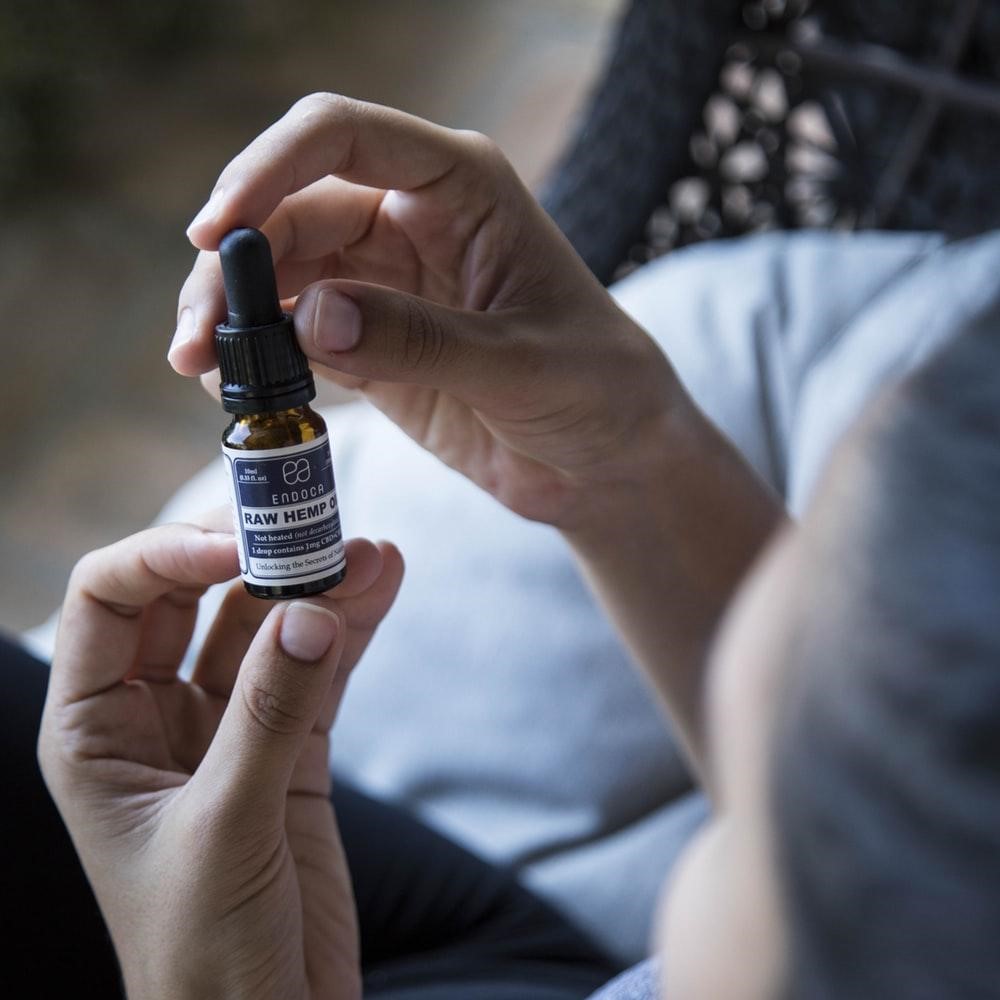
Each day, millions of Americans struggle with anxiety. It’s tough on both the mind and body—the near-constant state of worry, fatigue, and restlessness can have a negative impact on everyday life, with symptoms ranging from heightened blood pressure to insomnia to difficulties concentrating.
Unfortunately, anxiety can be difficult to treat. Of the 40 million Americans who suffer from anxiety or anxiety-related disorders, or about 18% of the adult population, only about 36% receive treatment. As of now, there are two main treatment options for anxiety: therapy and prescription medications. For many, however, these treatments can be costly, and some medications can have adverse side effects. It’s no wonder that, in recent years, more and more people with anxiety have been turning to CBD to help them cope with their mental health.
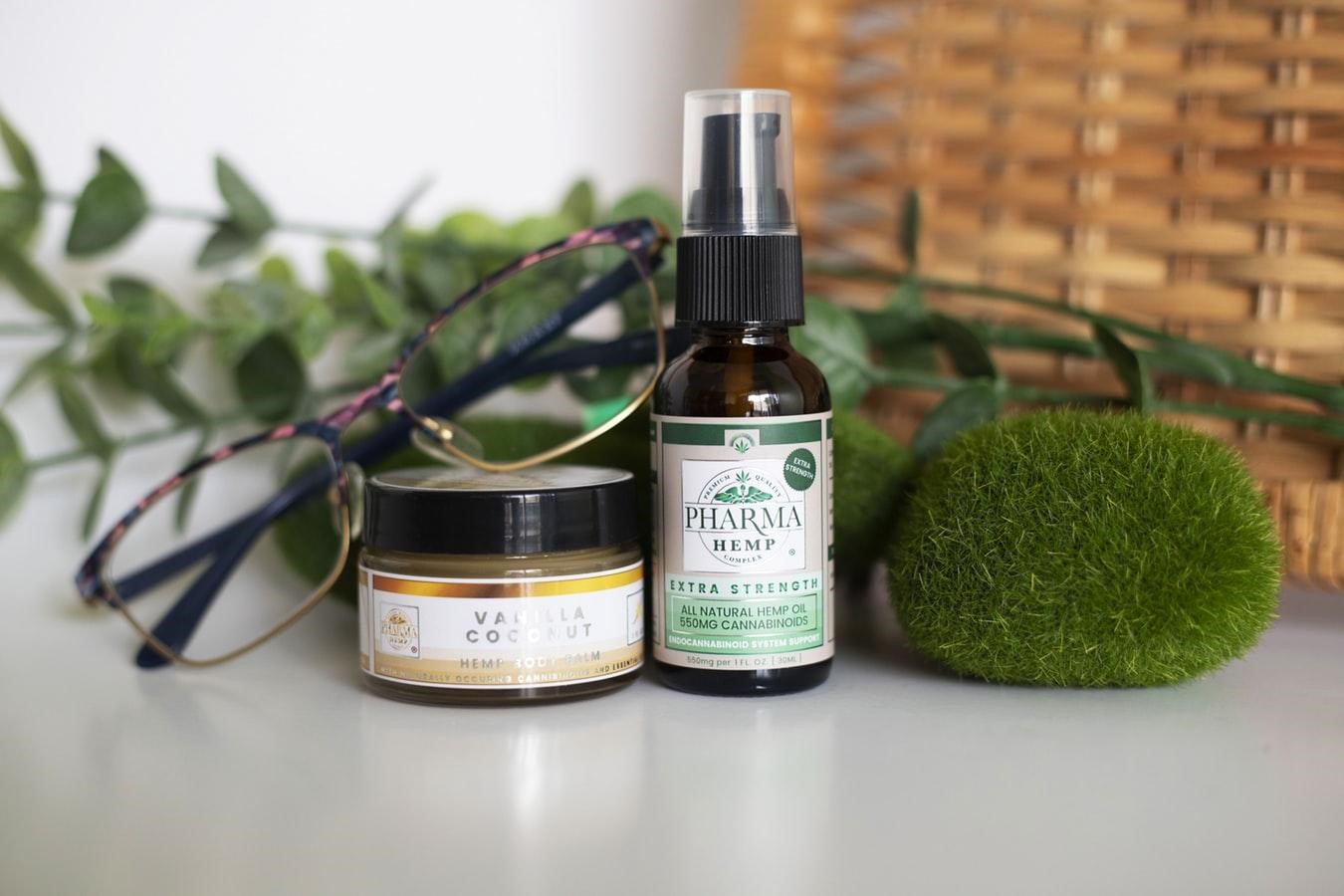
What is CBD?
Cannabidiol (CBD) is one of over 100 different chemical compounds derived from the cannabis plant, called cannabinoids. Until recently, CBD has flown mostly under the radar, overshadowed by another, more popular, cannabinoid: THC, or tetrahydrocannabinol. THC is a psychoactive cannabinoid and is the main culprit behind the “high” you get after consuming marijuana.
Though THC and CBD both come from cannabis, the latter does not have any psychoactive effects, and it does not result in a high when consumed on its own. However, it may have other positive biological effects—researchers are currently looking into the variety of ways CBD may be able to help people (and even animals) cope with a variety of ailments. Millions of dollars are spent on CBD each year by those looking for help coping with depression, anxiety, or pain.
What is Anxiety?
Anxiety can be tricky to define. Like depression and other mental illnesses, it manifests itself differently in each individual. That being said, some of the most common symptoms of generalized anxiety disorder include:
- Panic and uneasiness
- Restlessness
- Difficulty concentrating
- Irritability
- Muscle tension
- Fatigue
- Sleep problems
- Heart palpitations
Someone who suffers from anxiety may have all or just a few of these symptoms, and there are additional symptoms that can point towards other forms of anxiety-related disorders—for example, someone who suffers from regular panic attacks may have panic disorder, whereas someone who has excessive anxiety in social situations may suffer from social anxiety disorder.
Scientists are unclear about what exactly causes anxiety. A variety of factors appear to contribute to its development, such as environmental conditions, brain chemistry, general health, life events, and even genetics. In healthy individuals, the human body constantly strives for a stable internal environment, known as homeostasis. This is dependent on having the right balance in many different biological factors, including blood pressure, temperature, glucose levels, and hormone levels. In those with anxiety, one or many of these variables may be off balance.

How Can CBD Help With Anxiety?
Scientists have discovered that the endocannabinoid system—the system of neurotransmitters that processes naturally-occurring cannabinoids (knowns as endocannabinoids) via endocannabinoid receptors—helps maintain homeostasis, can affect serotonin levels, and is involved with feelings of anxiety. That is why there is mounting evidence that CBD, which is processed by this system, might be able to provide anxiety relief.
Anxiety and depression are thought to be caused in part by the lack of an important chemical in the brain called serotonin. CBD has been shown to mimic the effect of serotonin in the brain, capable of binding to and activating serotonin receptors (known as 5-HT1A receptors). For this reason, it appears that CBD has anxiolytic (anti-anxiety) and antidepressant characteristics, as shown in preclinical studies on mice who were exposed to stressful situations.
But even in humans, preliminary studies have shown promising signs that CBD can relieve nausea and anxiety. In patients with generalized social anxiety disorder, CBD users reported feeling less anxious and showed reduced anxious brain activity in brain scans than those who took a placebo. This anxiolytic effect seems to have real-world applications as well—another study had subjects perform a public speaking test after being treated with either CBD or a placebo. CBD-treated subjects showed “significantly reduced anxiety, cognitive impairment, and discomfort in their speech performance” than those who were administered a placebo.
Can CBD Help With Depression and Anxiety?
Though depression and anxiety are different conditions, they commonly occur together and can result in similar symptoms. Sometimes, depression is triggered by a history of anxiety disorder, or vice versa. Because CBD has both anti-anxiety and antidepressant properties, it’s possible that using it can have positive effects on both conditions.
However, it is important to speak to your doctor to find the best treatment option for you—these conditions should be taken seriously, and it’s unlikely that CBD will help on its own. For example, according to a recent survey, only 36% of people who used CBD for depression, anxiety, or pain reported that CBD treats their condition “very well by itself.”
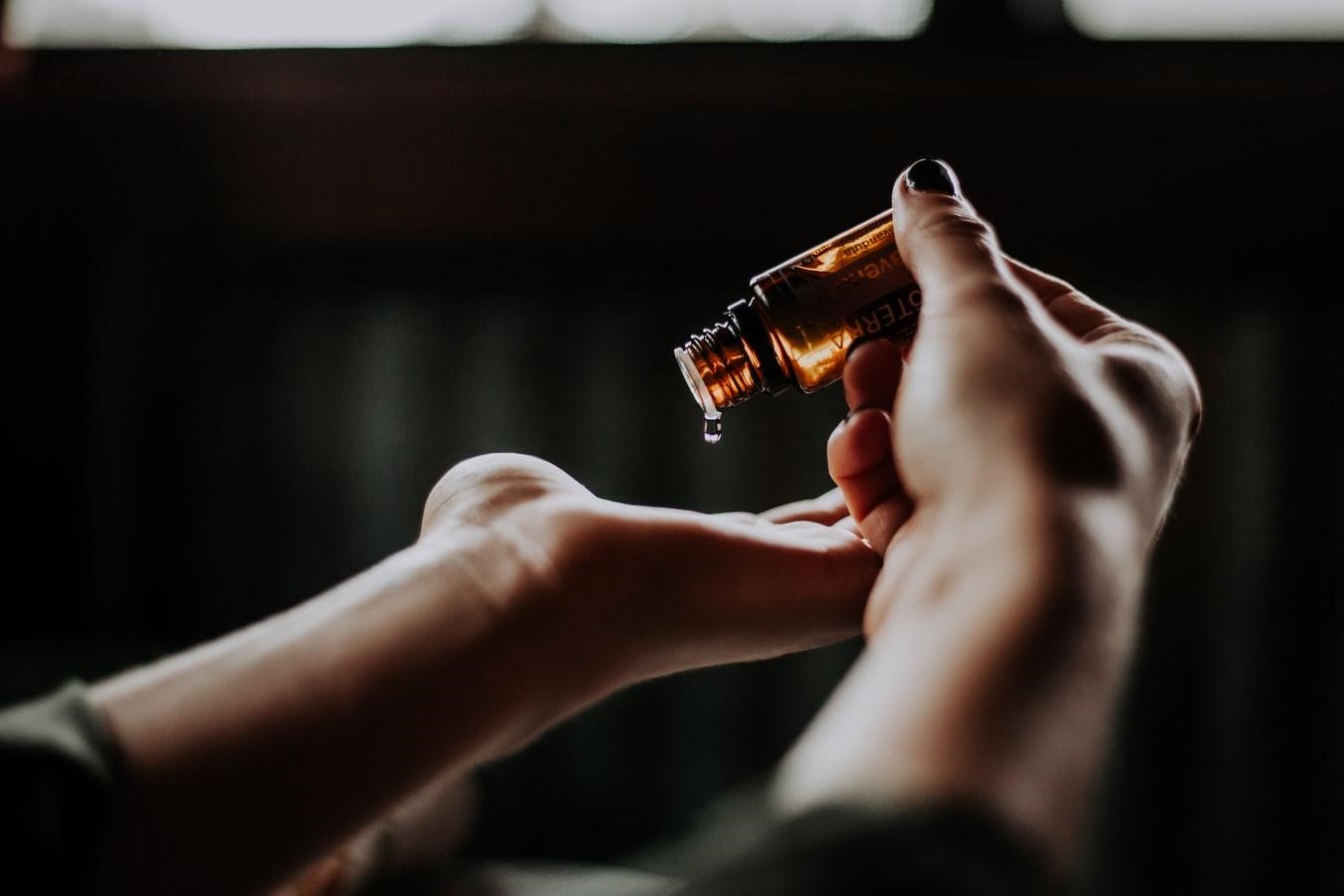
Can CBD Make Anxiety Worse?
There is no evidence that CBD can make anxiety worse on its own. That being said, CBD products may negatively affect people with anxiety if said products also contain THC. In a recent study, 18 out of 84 CBD products sold online contained THC, and some manufacturers have been unreliable about disclosing the amounts of CBD and THC in their merchandise. Talk to your doctor if you notice your anxiety symptoms getting worse after taking CBD.
How Does CBD Help With Anxiety Caused by THC From Marijuana?
In addition to helping individuals with anxiety disorders, CBD may help reduce anxiety that has been provoked by THC, the chemical behind marijuana’s psychoactive effects. Though THC has been found to increase anxiety in individuals who are predisposed to anxiety disorders, this effect seems to be counteracted following a dose of CBD. If you find yourself anxious after using marijuana, it may be helpful to find a high-CBD/low-THC strain—or to use CBD-only products.
I Don’t Have Anxiety, but I Get Nervous Sometimes. Can CBD Help?
For non-anxious adults, CBD doesn’t seem to be as effective. In one study on healthy adults, different doses of CBD and a placebo were administered to different groups of adults prior to being exposed to a series of emotional stimuli. CBD had little to no effect on the subjects. This means that if you’re someone who doesn’t suffer from anxiety but is simply looking to alleviate feelings of nervousness before an important exam or presentation, CBD won’t help—though it probably won’t hurt either.
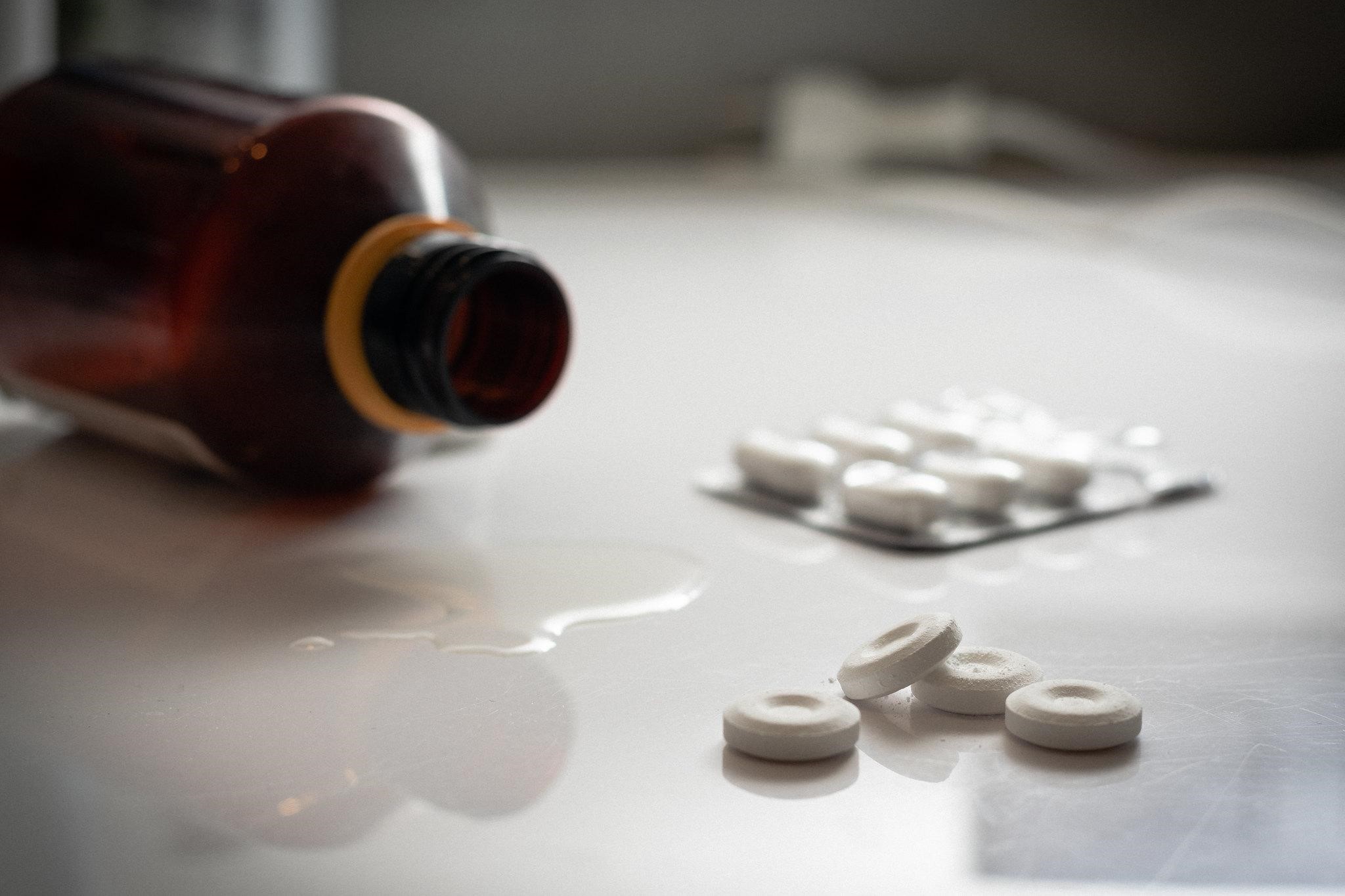
Is CBD a Good Natural Alternative to Anti-Anxiety Medications?
Anti-anxiety medications can be costly, addictive, and can have serious side effects, which is why CBD appears to be an attractive alternative. However, the Food and Drug Administration (FDA) has yet to approve the use of CBD to treat anxiety, and more studies are needed to determine whether or not CBD can be used as a viable alternative to anti-anxiety medication.
There are two main classes of anxiety medications: selective serotonin reuptake inhibitors (SSRIs) and benzodiazepines. SSRIs, which include drugs like Zoloft, work by increasing serotonin levels in the brain. Since CBD can activate serotonin receptors, there’s a possibility that it can be similarly helpful—without the psychological addiction of a prescription medication.
Benzodiazepines, on the other hand, include drugs like Ativan and Xanax. Benzodiazepines work by affecting neurotransmitters, one of which—gamma-aminobutyric acid, or GABA—is known by scientists to suppress nerve activity. Since anxiety is thought to be partially caused by excess nerve activity, drugs like Xanax reduce overall nerve activity by increasing the effects of GABA. Excitingly, researchers have found that CBD is also capable of altering the GABA neurotransmitter in a way that enhances its nerve-suppressing effects.
CBD seems to be a promising non-pharmaceutical option for those who do not respond to existing anti-anxiety medications or who suffer severely from their side effects. Nonetheless, it is important to talk to your doctor before stopping your prescriptions—abruptly coming off of your medications can result in withdrawal, with symptoms such as:
- Nausea and dizziness
- Irritability
- Insomnia
- Nervousness or tension
- Headaches
- Weight gain or weight loss
Does CBD Interact With Anti-Anxiety Medications?
It’s possible that CBD will interact with your medications. Research suggests that CBD is a strong CYP450 inhibitor, which is a liver enzyme that helps breakdown up to 60% of prescription medications. If the CBD dose is high enough, the enzyme could be unable to function properly, allowing too much of the medication to remain in your system—potentially causing dangerous side effects.
Common anti-anxiety medications like Xanax or Ativan are also broken down by this enzyme, so taking CBD in conjunction with prescription anti-anxiety medications could likely lead to increased side effects, such as drowsiness or sedation. Be sure to speak to your doctor before taking CBD alongside any medications you are prescribed.
Are There Any Side Effects to Taking CBD for Anxiety?
It is hard to say what the unintentional of effects of CBD might be on adults who suffer from anxiety. Studies observing the side effects of CBD have been mostly been conducted children with epilepsy, and the results may very well be different in anxious adults. In children, taking CBD had the following side effects:
- Diarrhea
- Dizziness
- Drowsiness
- Dry mouth
- Nausea
- Vomiting
- Changes in mood
- Changes in appetite
Let them your doctor know if you start experiencing any adverse side effects after taking CBD.
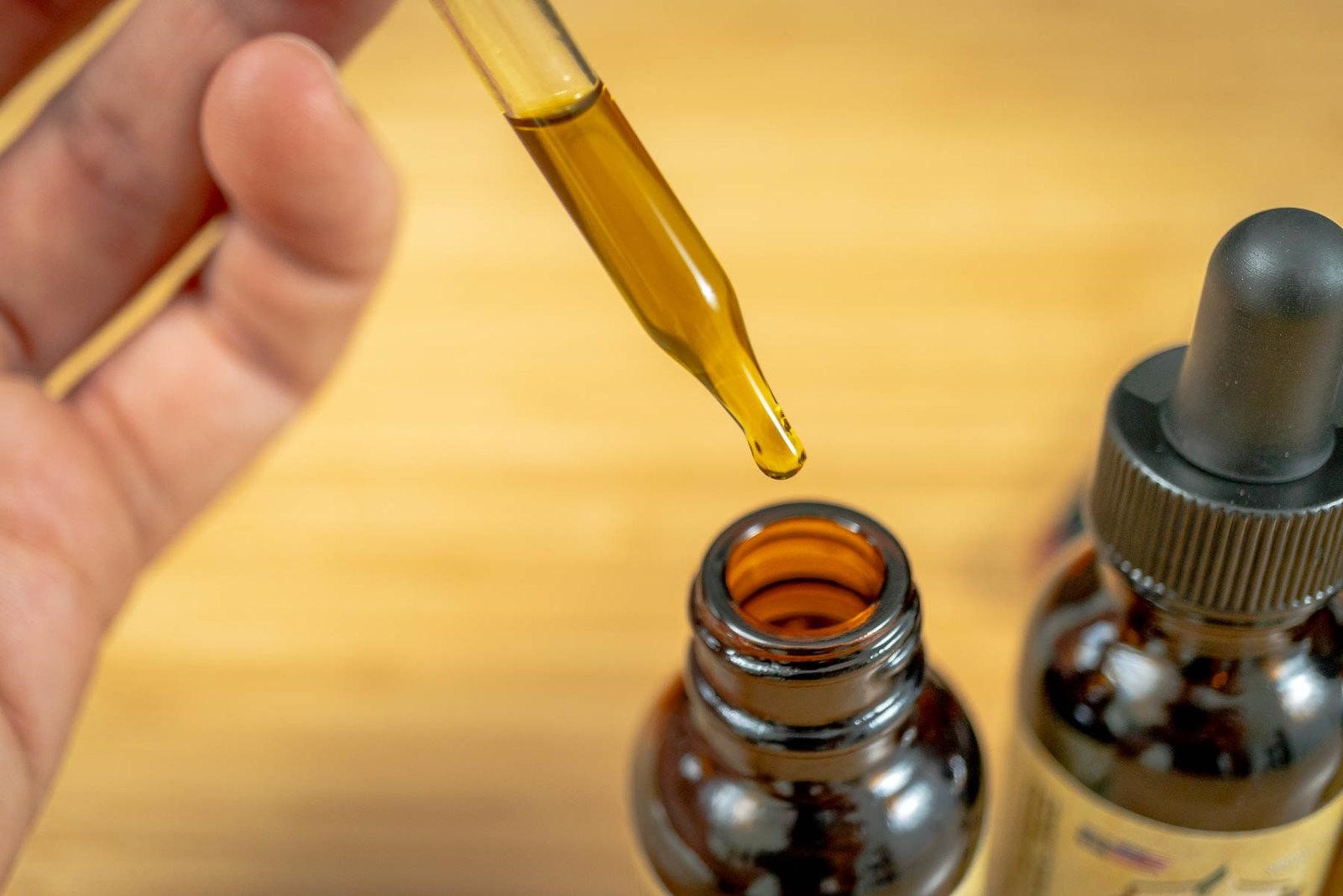
What Is the Best CBD Oil for Anxiety?
The CBD industry is worth almost $600 million, and it is projected to surpass $20 billion in sales by 2024. With numbers like that, it’s no wonder that there are thousands of different CBD products on the market. However, like with any health-related item, it’s important to find a CBD product and brand that works for you.
CBD can be taken in a variety of forms—as oil drops, capsules, and even as gummies.
However, oils are some of the most popular, as it is easiest to adjust their dosage to your individual needs. When choosing a CBD oil, first look at the CBD content. For beginners, full-spectrum CBD oils—oils that contain a variety of cannabinoids, rather than just an isolate of CBD—are the best option. This is because having all the active cannabinoids working together is thought to provide greater therapeutic effects, which means a lower dose would be needed for anxiety relief.
What Is the CBD Oil Dosage for Anxiety?
Unfortunately, there is not enough information to accurately determine what the “correct” CBD dosage should be. Research suggests that a moderate dose of CBD is the most effective. According to a study on subjects with social anxiety, CBD was found to reduce subjective anxiety in a 300 mg dose, but did not have any anti-anxiety effects when administered in doses of 100 or 900 mg.
Generally speaking, it is safest to start with a small dose and work your way up from there. Many people who take CBD oil for anxiety start with an initial dose of just 1 mg a day, after which they may gradually increase their dosage until it reaches 10 – 20 mg. Additionally, some people take it once a day, while others take it twice a day, with one dose in the morning and another 12 hours later. Take note of both the positive and negative feelings you observe as a result of taking CBD and adjust your dosage accordingly.
Dosage will vary depending on how you choose to ingest CBD, and a brand of one CBD product may contain a different concentration of CBD than another brand’s version of the same product. Make sure to read the packaging to see what the CBD content of each dose is, and follow the directions recommended by the manufacturer. You should also speak to your doctor to address any specific dosage concerns unique to you, including your weight, body chemistry, metabolism, and overall health.
Is it Safe to Take CBD for Anxiety?
So far, it doesn’t look like CBD has any harmful effects on adults with anxiety or otherwise. No one is at risk for abusing or developing dependence on it. Additionally, CBD was recently approved by the FDA in the drug Epidiolex to treat pediatric seizures, and the potential for other medical uses seems endless. Though there have been no formal studies regarding the positive or negative effects of long-time CBD use—just anecdotal evidence from everyday users—there appears to be little harm in using CBD for anxiety relief. Just be sure to speak to your doctor first.
Works Cited
Arndt, D. L., & Wit, H. D. (2017). Cannabidiol Does Not Dampen Responses to Emotional Stimuli in Healthy Adults. Cannabis and Cannabinoid Research, 2(1), 105-113. doi:10.1089/can.2017.0014
Bakas, T., Nieuwenhuijzen, P. V., Devenish, S., Mcgregor, I., Arnold, J., & Chebib, M. (2017). The direct actions of cannabidiol and 2-arachidonoyl glycerol at GABA A receptors. Pharmacological Research, 119, 358-370. doi:10.1016/j.phrs.2017.02.022
Blanco, C., Rubio, J., Wall, M., Wang, S., Jiu, C. J., & Kendler, K. S. (2014). Risk Factors For Anxiety Disorders: Common And Specific Effects In A National Sample. Depression and Anxiety, 31(9), 756-764. doi:10.1002/da.22247
Bonn-Miller, M. O., Loflin, M. J., Thomas, B. F., Marcu, J. P., Hyke, T., & Vandrey, R. (2017). Labeling Accuracy of Cannabidiol Extracts Sold Online. Jama, 318(17), 1708. doi:10.1001/jama.2017.11909
Corroon, J., & Phillips, J. A. (2018). A Cross-Sectional Study of Cannabidiol Users. Cannabis and Cannabinoid Research, 3(1), 152-161. doi:10.1089/can.2018.0006
Crippa, J. A., Derenusson, G. N., Ferrari, T. B., Wichert-Ana, L., Duran, F. L., Martin-Santos, R., . . . Hallak, J. E. (2010). Neural basis of anxiolytic effects of cannabidiol (CBD) in generalized social anxiety disorder: A preliminary report. Journal of Psychopharmacology, 25(1), 121-130. doi:10.1177/0269881110379283
Facts & Statistics. (n.d.). Anxiety and Depression Association of America. Retrieved June 24, 2019.
Fusar-Poli, P. (2009). Distinct effects of D9-tetrahydrocannabinol and cannabidiol on neural activation during emotional processing. European Psychiatry, 24. doi:10.1016/s0924-9338(09)70439-0
Grinspoon, P. (2019). Cannabidiol (CBD) – what we know and what we don’t. Retrieved June 26, 2019.
Iffland, K., & Grotenhermen, F. (2017). An Update on Safety and Side Effects of Cannabidiol: A Review of Clinical Data and Relevant Animal Studies. Cannabis and Cannabinoid Research, 2(1), 139-154. doi:10.1089/can.2016.0034
Linge, R., Jiménez-Sánchez, L., Campa, L., Pilar-Cuéllar, F., Vidal, R., Pazos, A., . . . Díaz, Á. (2016). Cannabidiol induces rapid-acting antidepressant-like effects and enhances cortical 5-HT/glutamate neurotransmission: Role of 5-HT1A receptors. Neuropharmacology, 103, 16-26. doi:10.1016/j.neuropharm.2015.12.017
Mechoulam, R., Peters, M., Murillo-Rodriguez, E., & Hanuš, L. (2007). Cannabidiol – Recent Advances. Chemistry & Biodiversity, 4(8), 1678-1692. doi:10.1002/cbdv.200790147
Ragland, J. D. (2011). Cannabidiol reduces the anxiety induced by simulated public speaking in treatment-naïve social phobia patients. Neuropsychopharmacology, 36(6), 1219-1226.
Ruehle, S., Rey, A. A., Remmers, F., & Lutz, B. (2011). The endocannabinoid system in anxiety, fear memory and habituation. Journal of Psychopharmacology, 26(1), 23-39.
Russo, E. B., Burnett, A., Hall, B., & Parker, K. K. (2005). Agonistic Properties of Cannabidiol at 5-HT1a Receptors. Neurochemical Research, 30(8), 1037-1043. doi:10.1007/s11064-005-6978-1
Russo, E. B. (2011). Taming THC: Potential cannabis synergy and phytocannabinoid-terpenoid entourage effects. British Journal of Pharmacology, 163(7), 1344-1364. doi:10.1111/j.1476-5381.2011.01238.x
U.S. CBD Market Anticipated to Reach $20 Billion in Sales by 2024. (2019, May 9). Retrieved from https://bdsanalytics.com/u-s-cbd-market-anticipated-to-reach-20-billion-in-sales-by-2024/
Zuardi, A., Crippa, J. D., Hallak, J., Campos, A., & Guimarães, F. (2017). The Anxiolytic Effects of Cannabidiol (CBD). Handbook of Cannabis and Related Pathologies. doi:10.1016/b978-0-12-800756-3.00097-1
Zuardi, A. W., Rodrigues, N. P., Silva, A. L., Bernardo, S. A., Hallak, J. E., Guimarães, F. S., & Crippa, J. A. (2017). Inverted U-Shaped Dose-Response Curve of the Anxiolytic Effect of Cannabidiol during Public Speaking in Real Life. Frontiers in Pharmacology, 8. doi:10.3389/fphar.2017.00259